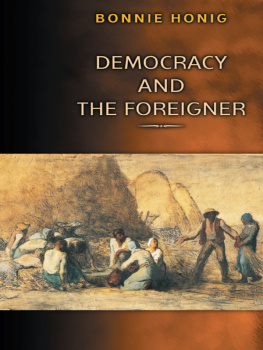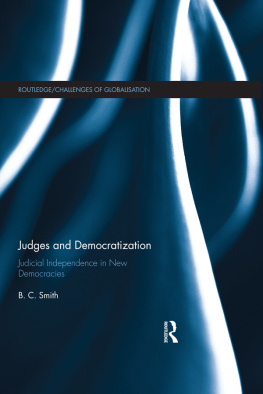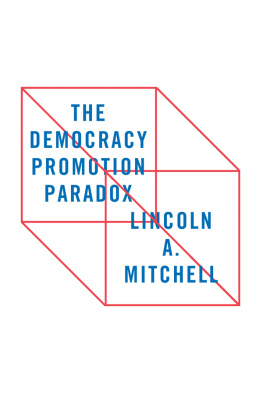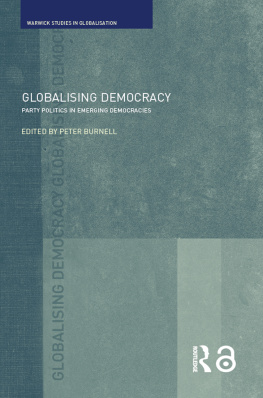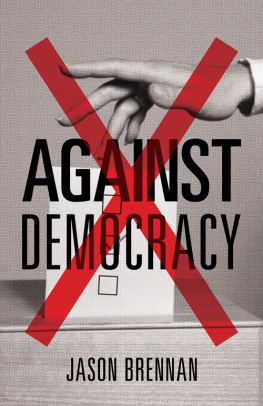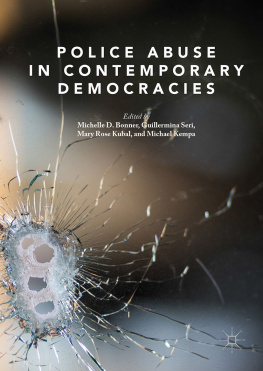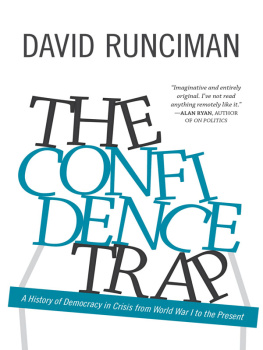EMERGENCY POLITICS
EMERGENCY POLITICS
PARADOX, LAW, DEMOCRACY
Bonnie Honig

Copyright 2009 by Princeton University Press
Published by Princeton University Press, 41 William Street,
Princeton, New Jersey 08540
In the United Kingdom: Princeton University Press, 6 Oxford
Street, Woodstock, Oxfordshire OX20 1TW
All Rights Reserved
Library of Congress Cataloging-in-Publication Data
Honig, Bonnie.
Emergency politics : paradox, law, democracy / Bonnie Honig.
p. cm.
Includes bibliographical references.
ISBN 978-0-691-14298-2 (hardcover)
1. Executive powerDeveloping countries. 2. DemocracyDeveloping countries. 3. Sovereignty. I. Title.
JF251.H66 2009
352.235dc22 2009004663
This book has been composed in Sabon
Printed on acid-free paper.
press.princeton.edu
Printed in the United States of America
10 9 8 7 6 5 4 3 2 1
To
James Moore
William Connolly
George Kateb
teachers and friends
If yearning were to forget what it already possesses, that would be a lie, but if possession forgot to yearn, that would be death.
Franz Rosenzweig
Contents
Acknowledgments
THE ESSAYS COLLECTED here began as occasional pieces for presentation at conferences or for specific edited collections. In the years they were written, democratic theorists had good reason to want to think deeply about emergency and sovereignty. The essays reflect that but they define emergency broadly to include food politics, animal welfare, and immigration issues, as well as the sovereignty-defining demands of war and terror.
In the context of the emergency politics of the last few years, it seemed important to identify not just tactics, strategies, and perspectives that might be useful to democratic theorists and activists, but also exemplars of democratic ideals and practices. Many years ago when a colleague asked if I had any heroes, I did not know how to answer what seemed to me at the time a strange question. I understand it better now and can say that some of the thinkers, actors, and movements I turn to in this book are heroes of mine if that means I admire them deeply albeit not uncritically. The subjects of , models a humorous and serious global/local politics of taste and justice. I hope this book will inspire others to learn from these examples.
Imagining a book, just like imagining a political future, is both necessary and insufficient to its realization. Moreover, such imagining cannot be done alone in spite of the fact that writing, unlike politics, is a solitary endeavor. Each of the chapters in this book was delivered publicly several times, as large keynote addresses or at small colloquia, graduate seminars, and anonymous conference settings. I have benefited from questions, comments, and interventions at Johns Hopkins University, University of Virginia, Cornell University, Amherst College, University of CaliforniaLos Angeles, Yale, Princeton, Columbia, University of Missouri at St. Louis, University of Chicago, Essex University, University of CaliforniaBerkeley, University of Melbourne, Australia National University, University of Minnesota, and Northwestern University. I thank especially my hosts at these institutions: Jane Bennett, Bill Connolly, Richard Flathman, Stephen White, George Klosko, Jason Frank, Tracy McNulty, Austin Sarat, Lawrence Douglas, Martha Umphrey, Ali Behdad, Kirstie McClure, Seyla Benhabib, Steve Macedo, Philip Pettit, Bruce Robbins, Lyman Sargent, Patchen Markell, Aletta Norval, Ernesto Laclau, Shannon Stimson, Hanna Pitkin, Marianne Constable, Wendy Brown, Judith Butler, Andrew Schaap, John Dryzek, Mary Dietz, Jim Farr, Jamie Druckman, Michael Loriaux, Sanne Taekema, and Roland Pierek. For commenting on some of the chapters, I am indebted to all these people and also to Leora Batnitzky, Patricia Daley, Juliet Williams, John Comaroff, Julie Cooper, Jill Frank, Larry Glickman, George Kateb, Jeff Lomonaco, Eric Santner, John McCormick, Marcie Frank, Hans Lindahl, Bert van Roermund, and the late and sorely missed Iris Young. At Tilburg University Law School, faculty and graduate students gathered to discuss the manuscript just as I was doing the final revisions. I am grateful to them for the attention they gave the work and to Hans Lindahl for organizing that event.
George Shulman and Mary Dietz read the book manuscript in its entirety, each offering those views of the whole that are so important in the late stages of writing. Ian Malcolm at Princeton University Press supported the project and two readers for the press helped give the book its final shape.
I was fortunate to be able to develop the ideas here presented in a series of graduate seminars taught at Northwestern University, where political theory is prized and supported. The political theory graduate students at Northwestern constitute the collective space of political imagination and critique that I am fortunate to share, along with Sara Monoson, Lars Toender, Mary Dietz, and Jim Farr. Theorys extended family at Northwestern includes many others as well, but I want to mention here those who read and commented on parts of this workin particular, Sam Weber, Peter Fenves, and Beth Hurd. Lida Maxwell, Laura Ephraim, and Diego Rossello provided valuable research assistance. Douglas Thompson prepared the final manuscript for publication. The American Bar Foundation provided support, funding not only my research assistants but also my appointment there. I am most grateful for the interdisciplinary intellectual environment supported by the leadership of Bob Nelson. The ABF has introduced me to approaches, literatures, and colleagues I would not otherwise have had the opportunity to know. For their help with parts of this book, I especially want to thank Bill Novak, Terry Halliday, Laura Beth Nielsen, and John Comaroff.
The American Philosophical Society provided a Sabbatical Fellowship that helped me finish this manuscript and start the next one. I profited as well from the APS Sabbatical Fellows conference where I met Richard Dunn and Mary Maples Dunn, then stewards of the APS sabbatical program, and was inspired by their commitment to the program and its ideals.
This book could be called a work of Jewish political theory, drawing as it does throughout on the inspiration of Franz Rosenzweig but also on midrashic tales and biblical interpretation. Bringing these essays together here for the first time, I myself was struck by how prominent a theme this was over the course of the book. For this I may have to thank my children, whose education has provided one of the occasions of my re-immersion in these materials. More generally, my familyMichael Whinston, Noah Whinston, and Naomi Honigprovide me with a challenging, joyous, and deeply satisfying experiment in living that I hope has found some expression in this book.
Finally, this book is dedicated to Jim Moore, Bill Connolly, and George Kateb in acknowledgment of my deep debt to them as teachers and friends. That it is this book I dedicate to them, and not the last and not the next, is appropriate because this one more than any other, I think, bears the marks of my past and continuing conversations with these men, mostly influential and intersecting, and once in a while at parallel play. Jim Moore introduced me to the work of Hannah Arendt and taught me the importance of historical approaches to political theory. He is the reason I pursued an academic career; he made it imaginable and he made it look fun and fulfilling. It is. Bill Connolly draws on Spinoza, Nietzsche, Deleuze, and Bergson to theorize politics for a world of becoming, while I draw here on Rosenzweig, Wittgenstein, Mendelssohn, Derrida, and Arendt on behalf of similar aims. It was Connollys work on new rights that first made me realize the promise, importance, and fecundity of a central theme of this book: the paradox of politics. George Kateb never loses sight of the absolute importance of constitutionalism for democracy. He always says to write for posterity, and he leads, in this as in other things, by fine example.


